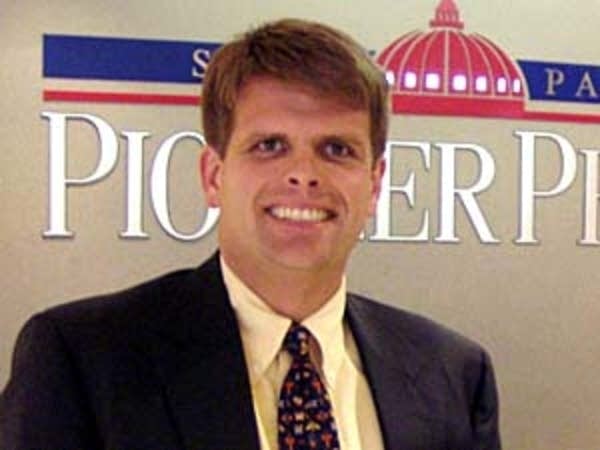Pioneer Press sues former publisher
Go Deeper.
Create an account or log in to save stories.
Like this?
Thanks for liking this story! We have added it to a list of your favorite stories.

The suit alleges 13 counts ranging from breach of contract to fraud to conspiracy.
It contends Par Ridder decided to leave the Pioneer Press more than five months before he actually resigned. In those five months, the suit says he continued to gain company secrets that he ultimately shared with top executives at the Star Tribune.
The court filing says those secrets included employees' salaries, profit and loss data, and customer lists of advertisers, along with ad revenue, ad rates, and company expenses for nearly every department.
Dean Singleton, CEO of Pioneer Press' parent company MediaNews, said the two sides had been meeting for the past two weeks in hopes of avoiding a court battle. Those talks failed. Dean Singleton said the only choice was to go to court.
Turn Up Your Support
MPR News helps you turn down the noise and build shared understanding. Turn up your support for this public resource and keep trusted journalism accessible to all.
"The dishonesty, the deceit, and the illegal activity..."
"The dishonesty, the deceit, and the illegal activity," Singleton said. "It was one thing for the publisher to leave to go to the competitor, but it was something else to inappropriately take information that did not belong to him to the other newspaper."
The Star Tribune's chairman Chris Harte released a written statement in response.
"We will address these matters point by point in our legal response to the complaint and look forward to a full resolution. Par Ridder has been discussing these matters in good faith with the Pioneer Press," Harte said.
In an earlier statement, Ridder said he had not and would not use any confidential Pioneer Press information to create an unfair advantage for the Star Tribune.
The lawsuit also claims Ridder illegally persuaded the paper's vice president of operations and another executive to work at the Star Tribune.
One of the central allegations to the case is that Ridder violated an agreement not to compete with the Pioneer Press' competitors. Dean Singleton said Ridder and the other two executives had non-compete agreements.
"He told everybody, including me, that he did not have [an agreement]. But he did have because we have copies of it," Singleton said. "The reason he said he had a no-compete was because he had confiscated the no-competes and put them in a file, including his own, in the personnel files, and took that with him when he left."
The Star Tribune's statement also said that because the issues related to Ridder and the Star Tribune are now in litigation, it's inappropriate to say more.
Jane Kirtley, who teaches media ethics and law at the University of Minnesota, said the case is unusual, since it involves a non-compete agreement with a publisher.
"It comes up occasionally in what we call talent in the broadcast industry," she said, "but that tends to be some individual who appears on a television station, for example, and wanting to go to work for a competitor. But I'm not aware of a similar lawsuit brought against a publisher."
Media securities analyst John Morton said most newspapers in general know what their competitors are doing. He says they can almost guess a lot of the business strategy.
But if the allegations are true that Ridder shared specific data, that information could do serious damage to the Pioneer Press.
"When you get down to knowing, for example, the payroll of a competing newspaper, when you can get down to knowing what different advertisers -- what rates they're paying -- this is the kind of information that one newspaper would not want a competitor to have because it could be used against them," Morton said.
The Pioneer Press is asking the court to order the Star Tribune to permit a computer expert to inspect the computer systems of the Star Tribune, Par Ridder and the two executives for Pioneer Press files and data.
The lawsuit also seeks monetary damages, attorneys fees, and a ban on Ridder working at the Star Tribune for at least one year.




